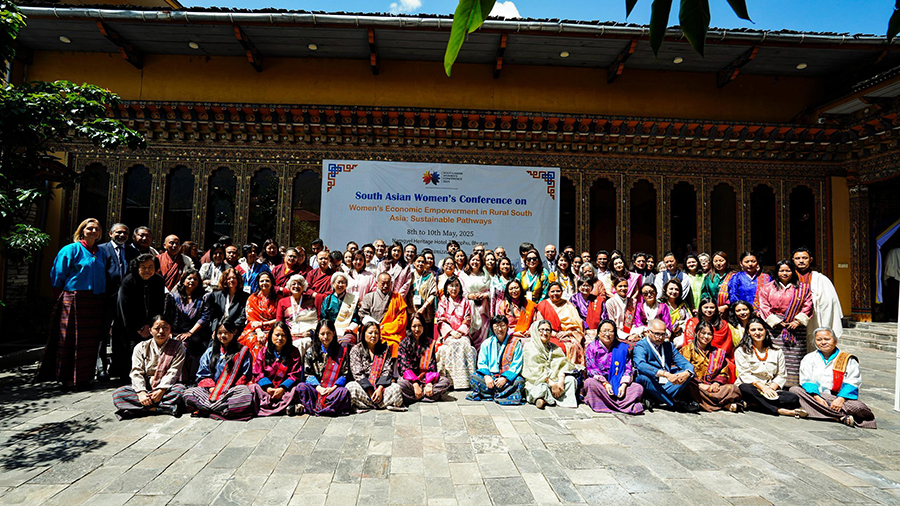 A brighter future awaits the Lhop community in Samtse. The Tarayana Foundation has identified the culturally unique community as one of its rural community tourism destinations. The Tarayana Foundation announced this at the inaugural ceremony of the South Asian Women’s Conference 2025, which commenced in Thimphu today. Her Majesty Queen Mother Dorji Wangmo Wangchuck graced the event.
A brighter future awaits the Lhop community in Samtse. The Tarayana Foundation has identified the culturally unique community as one of its rural community tourism destinations. The Tarayana Foundation announced this at the inaugural ceremony of the South Asian Women’s Conference 2025, which commenced in Thimphu today. Her Majesty Queen Mother Dorji Wangmo Wangchuck graced the event.
Groundworks have already been initiated to enable the Lhop community to capitalise on their uniqueness.
The rural community in the foothills currently rely on agriculture as the main source of livelihood.
Recognising community tourism as one of the key drivers of change, the Tarayana Foundation is implementing rural tourism in the Lhop community.
According to the Civil Society Organisation, they have consulted the community members and have already identified two households to run eco-lodge for rural tourism.
Thinley Bidha, field officer of Tarayana Foundation in Samtse said “Apart from the opportunity for community tourism, the Lhop community has in store its unique culture such as their dances and cuisines. Through local tourist guides, opportunities for employment within their own community can be ensured. Therefore, we have designated the community tourism site there.”
The initiative is expected to empower rural women and communities.
Her Majesty Queen Mother Dorji Wangmo Wangchuck and speakers at the “Conference on Women’s Economic Empowerment in Rural South Asia” emphasised rural tourism as a transformative tool for women empowerment.
Her Majesty Queen Mother Dorji Wangmo Wangchuck said “We are here because we believe that the future of our region must be shaped by women’s voices, values and vision. Let me begin with a simple truth; women’s work builds nations. Whether it is in the formal enterprises or informal care work, whether as farmers, artisans, professionals or home makers, women are the invisible angels of our economies.”
Cecile Fruman, Acting Country Director of World Bank Bhutan said “Tourism is an incredibly important sector for women’s empowerment. What we know is that worldwide, 54 per cent of the labor force in tourism is women. We also know that the wage gap, the difference between how much women make and men make, is lower in tourism than in other sectors. So, this is a sector that not only employs women but also gives them much better economic opportunity.”
Bandana Rana, a member of CEDAW, United Nations said “The most important thing is including women in policy making, not as beneficiaries but as co-creators. How this is going to help is that for women in rural areas, things have changed in the past recent years. They own businesses, run home stays, and there is ecotourism. But the work they are doing is underpaid, undervalued and not recognised.”
Tulsi Ghalley, Programme Officer of Tarayana Foundation said “Over fifty women leaders from around seven countries of the South Asian region have come here. They are experts in policy-making, digital transformation and community tourism. Moreover, Tarayana Foundation being the lead orgniser, we aim to enhance collaboration between women of South Asia especially from India, Nepal and Bhutan.”
The conference brought together over 100 participants including policy-makers, gender experts, and grassroots activists focused on including men in empowering women as social mindset shift is required for holistic progress.
The three-day conference will see discussions on sustainable and inclusive economic opportunities to ensure that women lead the way in tourism, in transformation, and in crafting a sustainable and inclusive South Asia.
Kelzang Chhophyel
Edited by Phub Gyem








